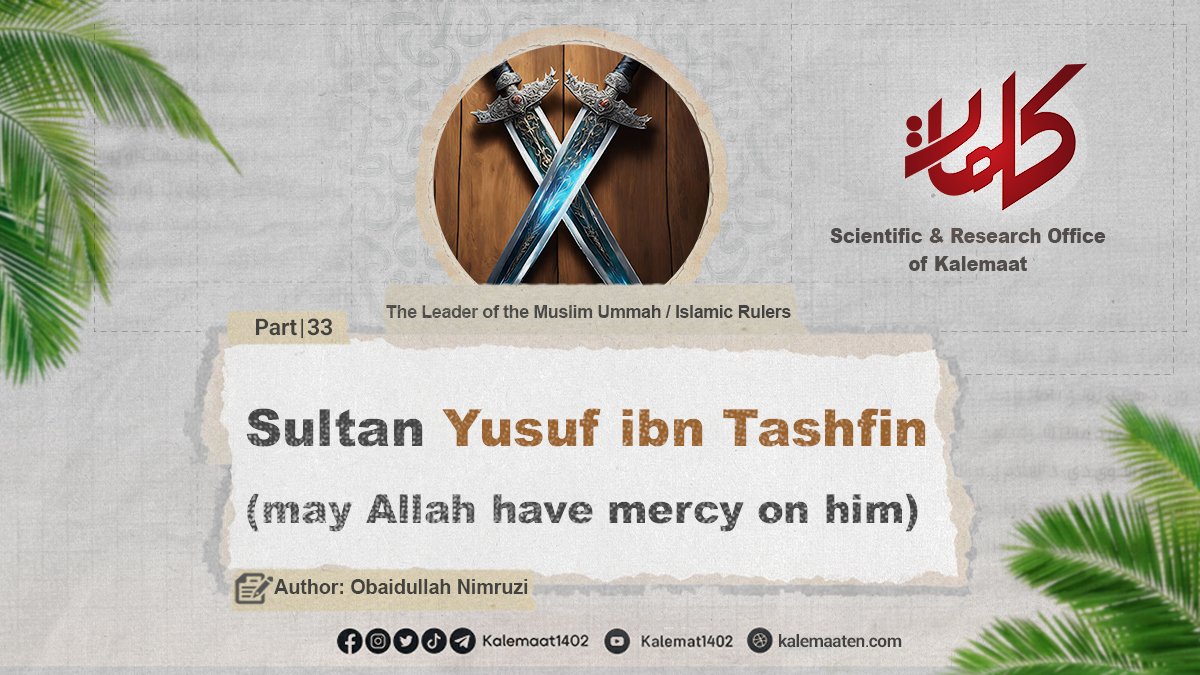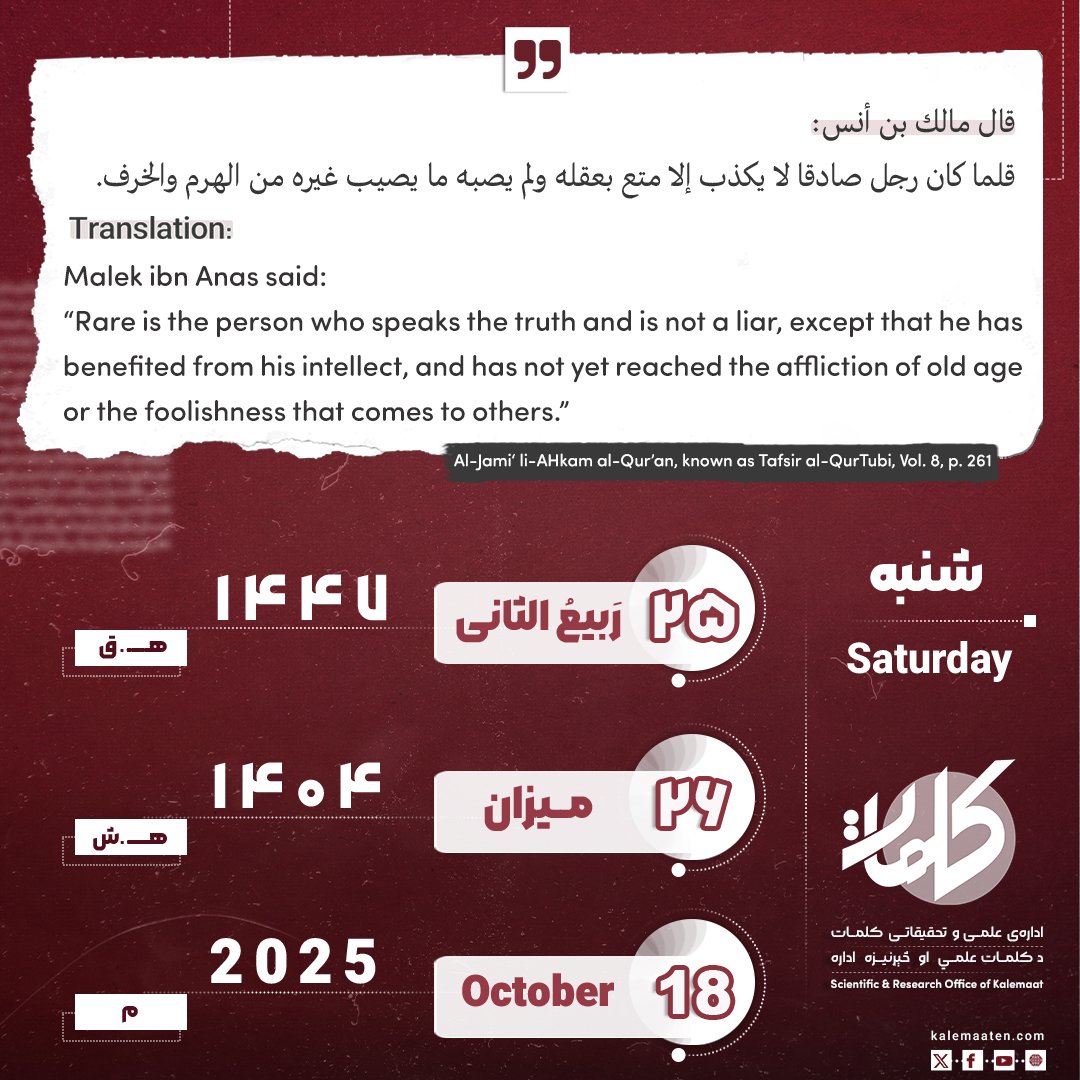
Author: Obaidullah Nimruzi
The Guardian of al-Andalus (Spain): Sultan Yusuf ibn Tashfin [MABH] (Part 33)
Cordoba; From the Peak of Glory to the Depths of Decline
The city of Cordoba, once the brightest center of the Islamic Caliphate and civilization in Andalusia, was on the path to decline. This city moved with every breeze and obeyed every empty cry. This was the same city that, during the reign of Abd al-Rahman al-Dakhil, had replaced Baghdad during the reign of Harun al-Rashid. Cordoba reached the peak of greatness and prosperity during the reign of Abd al-Rahman al-Nasser and then during the reign of al-Hikam al-Mustansir. [1]
The role of the Berbers in the arson attacks
The Berbers also played an important role in the seditions. When they entered Andalusia with the Caliph Sulayman al-Musta’in billah, they divided the city among themselves and took possession of it. If anyone resisted them, they killed him and burned and destroyed any place that did not surrender. [2]
An Elegy for Cordoba: The Beginning of the Decline of Andalusia
When the people saw that sad situation, they shed tears, and some poets sang this elegy for Cordoba with heartfelt sorrow:
ابكِ على قُرطُبةَ الزينِ كانتْ على الغايةِ من حُسنِها فانعكسَ الأمرُ فما إنْ ترى
فقد دهَتها نظرةُ العينِ وعيشُها المُستعذبُ اللّينِ
بها سروراً بين اثنينِ
Translation: “Cry over Cordoba, where once it was the ultimate beauty; but now everything has been turned upside down and it is no longer recognizable. It has been afflicted by the evil eye, that sweet and pleasant life, in which happiness was shared between two people”.
In fact, that pleasant life in which Andalusia lived, and which poets were eager to describe, gradually began to decline since the year 399 AH. At that time, the Crusaders began to seize fortresses, occupy cities, plunder property and impose taxes. What facilitated this invasion was the situation of division and conflict among the Andalusian emirs. These emirs had torn the body of the Caliphate apart, each with a baseless claim for himself. As Ibn al-Khatib has described the situation as follows:
حتى إذا سُلكَ الخلافةُ انتشرَ قامَ بكلِّ بقعةٍ مليكُ
وذهبَ العينُ جميعاً والأثرُ وصاحَ فوقَ كلِّ غصنٍ ديكُ
Translation: “When the Caliphate deviated from its original path, a kingship rose in every corner. And all eyes and traces disappeared, and a rooster crowed on every branch”. [3]
The decline of the Caliphate and the emergence of deceptive titles
The tribal emirs, like their brothers, were negligent in their oppression and treachery towards their people. Each one dominated a part of Andalusia and ruled over it. The mention of the caliphate and the prayer for the caliphate were removed from the pulpits. These emirs nicknamed themselves with the titles of the previous caliphs, such as “Al-Ma’mun”, “Al-Mu’tasim”, “Al-Mansur”, “Al-Rashid”, “Al-Qadir”, “Al-Muqtadir” and “Al-Mu’tazed”, which were more indicative of their emptiness.
The use of these titles not only expressed their disregard for the values of the Islamic community, but also testified to their greed, and their love for empty show and luxury that they indulged in in their magnificent palaces and pleasure gatherings. All this while sacrificing the honor and dignity of the Muslim community for their personal desires.
The nation’s disgust with tribal rulers
The people of Andalusia were disgusted by such rule, to the point of becoming ascetic towards their ancestral land. This general hatred is reflected in the poem of Abu Ali Hassan ibn Rashiq al-Qayrawani:
مما يُزهِّدُني في أرضِ أندلسٍ ألقابُ مملكةٍ في غيرِ موضعِها
أسماءُ معتمدٍ فيها ومعتضِدٍ كالهرِّ يحكي انتفاخاً صورةَ الأسدِ
Translation: “What makes me dislike Andalusia are the king’s titles that are out of place. Names like “Motamed” and “Motazed”, which are like a cat that pretends to be a lion by puffing up”.
Although we do not agree with the poet in his asceticism towards Andalusia, he has well reflected the psychological state of the people of the time. People who no longer saw any hope of reform and were caught in the abyss of sedition.
Andalusia during the era of tribal rulers: From glory to servitude
Andalusia, which had lived with honor and dignity for nearly three centuries under the shadow of jihad and the light of pure Islamic faith, and had cultivated a society full of humanity, love, the pursuit of knowledge, service to the nation, and competition in charity, gradually fell into decline.
This decline began when their connection with faith weakened, they became attached to the world, and became involved in fleeting pleasures; the same pleasures that led previous nations to ruin. They immersed themselves in wealth accumulation, leadership, and worldly competition, and this caused:
-
Society to disintegrate;
-
The standards of values to collapse;
-
The blood of Muslims to be shed;
-
Their property to be plundered;
-
And their land to be torn apart.
In the meantime, the princes of sedition emerged; Those who allied themselves with the Christians made the Jews their ministers, and they flourished the market of flatterers and bread at the daily rate. Those who were without origin, without conscience, and who were treacherous and false. They were busy in the palaces with pleasure and idleness and sacrificed the interests of the nation for their own pleasure.
The result was nothing but:
-
Continuous conflicts;
-
Continuous seditions;
-
Desecrations;
-
Historical defeats and humiliations;
-
And the way was opened for the enemies.
The enemies benefited from the good things of the land, prevailed over the lives of the Muslims, committed murder, captivity and rape; and all these disasters became accustomed to humiliation and agreed to pay tribute to the Crusaders for their survival.
Continues…
References:
- Ibn Azari, Al-Bayan Al-Maghrib, Vol. 3, p. 111.
- Ibid, p. 115.
- Ibn Al-Khatib, Diwan of Poetry, Vol. 2, p. 248.



